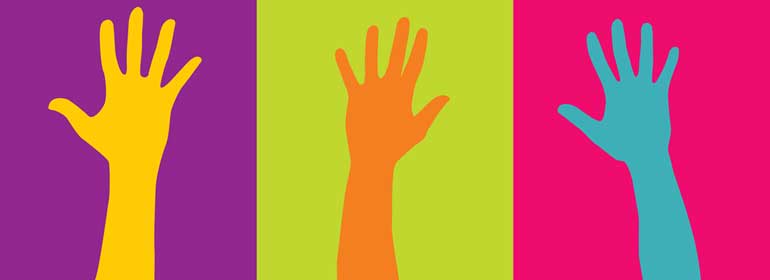The growth of LGBT to include Q for Queer and I for Intersex, among other initials, may be necessary says Rob Buchanan, but you have to draw the line somewhere.
Looking for queer-interest groups on the Internet recently I was frustrated by what appears to be a new fad amongst our Yankee counterparts. Not content with the broad stroke of LGBT as an inclusive community moniker, there are veritable alphabets of sexual and gender categories and pigeonholes. Some of them are demonstrably valid, like ‘I’ for intersex. Some are moderately social construct-meets-identity terms, like ‘guydyke’ and ‘girlfag’. Others are far too idiosyncratic to be useful and too whimsical to be taken seriously.
Some of them are solely focused on individual, exclusive sexual fetishes, like dressing up as furry animals, or only having sex with balloons, or only drinking urine etc. Whilst all these are clearly valid pastimes or fetishes they could scarcely to be called ‘identities’ worthy of being included in the wider discourse of LGBT rights. Yet I found these people complaining on a particular site that the ‘LGBT’ initialization is discriminatory because it doesn’t identify their own specific slices of the non-hetero cake. Perhaps we should be the LGBTFABP community, to include our Furry Anthropomorphic Balloon-Riding Piss-drinkers brothers and sisters? That would really roll of the tongue in political debates.
I do feel that some criticism of the LGBT initialization is valid. Some have brought up the fact that trans identities are defined by preferred gender and not necessarily sexuality, while lesbian, gay and bisexual identities are on the whole defined by sexual orientation. Likewise with intersex people. Asexual people who are occasionally thrown in to the mix too might complain that their biological lack of interest in sex has only the most tenuous connection with LGBT folk. My own preferred self-description as a gay man, who occasionally has sex with women, is ‘queer’. People can call me bisexual if they like, however it’s odd that they never call me lesbian, even though I’ve slept with lesbians too. I have no objection to there being no Q in the LGBT – I feel I know what it means and it includes me.
Adding More Letters
I think the gesture of adding ever-more letters to the interminable initialization might become tedious, but if it helps people feel included then maybe it’s necessary. Until relatively recently representation and recognition of trans people was shockingly poor within our community. Trans folk were pushed aside in the race for greater gay rights and the T in LGBT was silenced. This is now is being addressed, albeit slowly.
Lesbians, particularly those with a more feminist leaning, often have issues with the overshadowing of LGBT rights and initiatives by the G sector. It’s undeniable that the lion’s share of visibility and representation still goes to gay men and understandably this can cause some lesbians to see the benefits of pursuing their own parallel identities, which might better serve their unique interests.
Bisexuals continue to face biphobia from within the gay community and without. A bisexual female mate of mine told me recently that rather than men being titillated by it, they were threatened and were unwilling to commit to a relationship, presumably assuming that she’d inevitably fly off on her dyke broomstick at the next full moon. My mate also faced cynicism about her fidelity from girlfriends who thought they were competing with men.
Having said this, I saw a lot of t-shirts at the last Dublin Pride featuring slogans proclaiming bisexuality and worn by the swarms of teens who livened up the parade, which suggests that a very different attitude to bisexuality is a feature of younger generations.
Just A ‘Sexuality’
Overall the most prevailing objections that non-heterosexual people seem to have to the LGBT coalition is that the application of a collective label to any non-straight person somehow dehumanises or reduces, defining them as just a ‘sexuality’. But what’s more important than the semantics of the nomenclature is the spirit behind it. We don’t need to be pedantic. Inclusion and unity are core principals of the queer rights movement, and surely the inclusion more fellow travellers will only enrich our cause? We share the same destination and the same goal – equality. And because it is equality for all, superficial differences pale in comparison to such a unified, noble, human objective.
LGBT identity isn’t just about protest or protection. It’s also about celebrating the diversity of cultures and experiences. LGBT people have lives, not lifestyles. We are not an ‘alternative’, we are a parallel course. Lesbians and gay men might have different experiences of everything, from homophobia to starting families, but at the core we share the same needs for equality and dignity, and the same hopes for a future. We have also faced similar feelings of dislocation from the wider society and some of us also know that most unique of heartbreaks, the love that could never be requited because the object of our affection was straight. Ultimately it should be up to individual L or G or B or T people to decide if they feel they should be considered subsets within a catchall initialization (as well as asexual, intersex and anyone else). I don’t think it’s the place of one part of the spectrum to cast out some other swathe of people. Surely that’s exactly the type of exclusion and discrimination we’ve been fighting so hard and for so long against?
© 2014 GCN (Gay Community News). All rights reserved.
